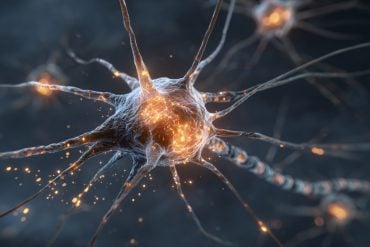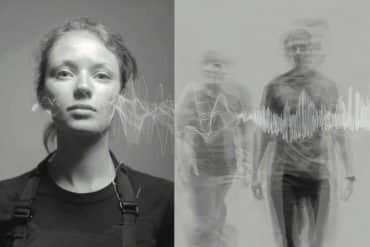Summary: Improving muscle strength can also improve brain function in those with MCI, researchers report.
Source: University of Sydney.
Increased muscle strength leads to improved brain function in adults with Mild Cognitive Impairment (MCI), new results from a recent trial led by the University of Sydney has revealed.
With 135 million people forecast to suffer from dementia in 2050, the study’s findings–published in the Journal of American Geriatrics today–have implications for the type and intensity of exercise that is recommended for our growing ageing population.
Mild Cognitive Impairment defines people who have noticeably reduced cognitive abilities such as reduced memory but are still able to live independently, and is a precursor to Alzheimer’s disease.
Findings from the Study of Mental and Resistance Training (SMART) trial show, for the first time, a positive causal link between muscle adaptations to progressive resistance training and the functioning of the brain among those over 55 with MCI.
The trial was conducted in collaboration with the Centre for Healthy Brain Ageing (CHeBA) at University of New South Wales and the University of Adelaide.
“What we found in this follow up study is that the improvement in cognition function was related to their muscle strength gains” said lead author Dr Yorgi Mavros, from the Faculty of Health Sciences, at University of Sydney.
“The stronger people became, the greater the benefit for their brain.”
SMART was a randomised, double-blind trial involving 100 community-dwelling adults with MCI, aged between 55 and 86. They were divided into four groups doing either:
- Resistance exercise and computerised cognitive training;
- Resistance exercise and a placebo computerised training (watching nature videos);
- Brain training and a placebo exercise program (seated stretching/calisthenics); or
- Placebo physical exercise and placebo cognitive training.
Participants doing resistance exercise prescribed weight lifting sessions twice week for six months, working to at least 80 per cent of their peak strength. As they got stronger, the amount of weight they lifted on each machine was increased to maintain the intensity at 80 per cent of their peak strength.
The primary outcomes of a paper published in 2014 found these participants’ global cognition improved significantly after the resistance training, as measured by tests including the Alzheimer’s disease Assessment Scale-Cognitive scale. The cognitive training and placebo activities did not have this benefit. The benefits persisted even 12 months after the supervised exercise sessions ended.
“The more we can get people doing resistance training like weight lifting, the more likely we are to have a healthier ageing population,” said Dr Mavros.
“The key however is to make sure you are doing it frequently, at least twice a week, and at a high intensity so that you are maximising your strength gains. This will give you the maximum benefit for your brain.”
These new findings reinforce research from the SMART trial published earlier this year, whereby MRI scans showed an increase in the size of specific areas of the brain among those who took part in the weight training program. These brain changes were linked to the cognitive improvements after weight lifting.

“The next step now is to determine if the increases in muscle strength are also related to increases in brain size that we saw,” said senior author Professor Maria Fiatarone Singh, geriatrician at University of Sydney.
“In addition, we want to find the underlying messenger that links muscle strength, brain growth, and cognitive performance, and determine the optimal way to prescribe exercise to maximise these effects.”
Funding: The SMART trial was funded by Australia’s National Health and Medical Research Council. It was conducted in collaboration with the Centre for Healthy Brain Ageing (CHeBA) at UNSW and the University of Adelaide.
Source: Kobi Print – University of Sydney
Image Source: NeuroscienceNews.com image is in the public domain.
Original Research: Abstract for “Mediation of Cognitive Function Improvements by Strength Gains After Resistance Training in Older Adults with Mild Cognitive Impairment: Outcomes of the Study of Mental and Resistance Training” by Yorgi Mavros, Nicola Gates, Guy C. Wilson, Nidhi Jain, Jacinda Meiklejohn, Henry Brodaty, Wei Wen, Nalin Singh, Bernhard T. Baune, Chao Suo, Michael K. Baker, Nasim Foroughi, Yi Wang, Perminder S. Sachdev, Michael Valenzuela and Maria A. Fiatarone Singh in Journal of the American Geriatrics Society. Published online October 24 2016 doi:10.1111/jgs.14542
[cbtabs][cbtab title=”MLA”]University of Sydney “Increasing Muscle Strength Can Improve Brain Function.” NeuroscienceNews. NeuroscienceNews, 24 October 2016.
<https://neurosciencenews.com/brain-function-muscle-strength-5340/>.[/cbtab][cbtab title=”APA”]University of Sydney (2016, October 24). Increasing Muscle Strength Can Improve Brain Function. NeuroscienceNew. Retrieved October 24, 2016 from https://neurosciencenews.com/brain-function-muscle-strength-5340/[/cbtab][cbtab title=”Chicago”]University of Sydney “Increasing Muscle Strength Can Improve Brain Function.” https://neurosciencenews.com/brain-function-muscle-strength-5340/ (accessed October 24, 2016).[/cbtab][/cbtabs]
Abstract
Mediation of Cognitive Function Improvements by Strength Gains After Resistance Training in Older Adults with Mild Cognitive Impairment: Outcomes of the Study of Mental and Resistance Training
Objectives
To determine whether improvements in aerobic capacity (VO2peak) and strength after progressive resistance training (PRT) mediate improvements in cognitive function.
Design
Randomized, double-blind, double-sham, controlled trial.
Setting
University research facility.
Participants
Community-dwelling older adults (aged ≥55) with mild cognitive impairment (MCI) (N = 100).
Intervention
PRT and cognitive training (CT), 2 to 3 days per week for 6 months.
Measurements
Alzheimer’s Disease Assessment Scale–cognitive subscale (ADAS-Cog); global, executive, and memory domains; peak strength (1 repetition maximum); and VO2peak.
Results
PRT increased upper (standardized mean difference (SMD) = 0.69, 95% confidence interval = 0.47, 0.91), lower (SMD = 0.94, 95% CI = 0.69–1.20) and whole-body (SMD = 0.84, 95% CI = 0.62–1.05) strength and percentage change in VO2peak (8.0%, 95% CI = 2.2–13.8) significantly more than sham exercise. Higher strength scores, but not greater VO2peak, were significantly associated with improvements in cognition (P < .05). Greater lower body strength significantly mediated the effect of PRT on ADAS-Cog improvements (indirect effect: β = −0.64, 95% CI = −1.38 to −0.004; direct effect: β = −0.37, 95% CI = −1.51–0.78) and global domain (indirect effect: β = 0.12, 95% CI = 0.02–0.22; direct effect: β = −0.003, 95% CI = −0.17–0.16) but not for executive domain (indirect effect: β = 0.11, 95% CI = −0.04–0.26; direct effect: β = 0.03, 95% CI = −0.17–0.23).
Conclusion
High-intensity PRT results in significant improvements in cognitive function, muscle strength, and aerobic capacity in older adults with MCI. Strength gains, but not aerobic capacity changes, mediate the cognitive benefits of PRT. Future investigations are warranted to determine the physiological mechanisms linking strength gains and cognitive benefits.
“Mediation of Cognitive Function Improvements by Strength Gains After Resistance Training in Older Adults with Mild Cognitive Impairment: Outcomes of the Study of Mental and Resistance Training” by Yorgi Mavros, Nicola Gates, Guy C. Wilson, Nidhi Jain, Jacinda Meiklejohn, Henry Brodaty, Wei Wen, Nalin Singh, Bernhard T. Baune, Chao Suo, Michael K. Baker, Nasim Foroughi, Yi Wang, Perminder S. Sachdev, Michael Valenzuela and Maria A. Fiatarone Singh in Journal of the American Geriatrics Society. Published online October 24 2016 doi:10.1111/jgs.14542







